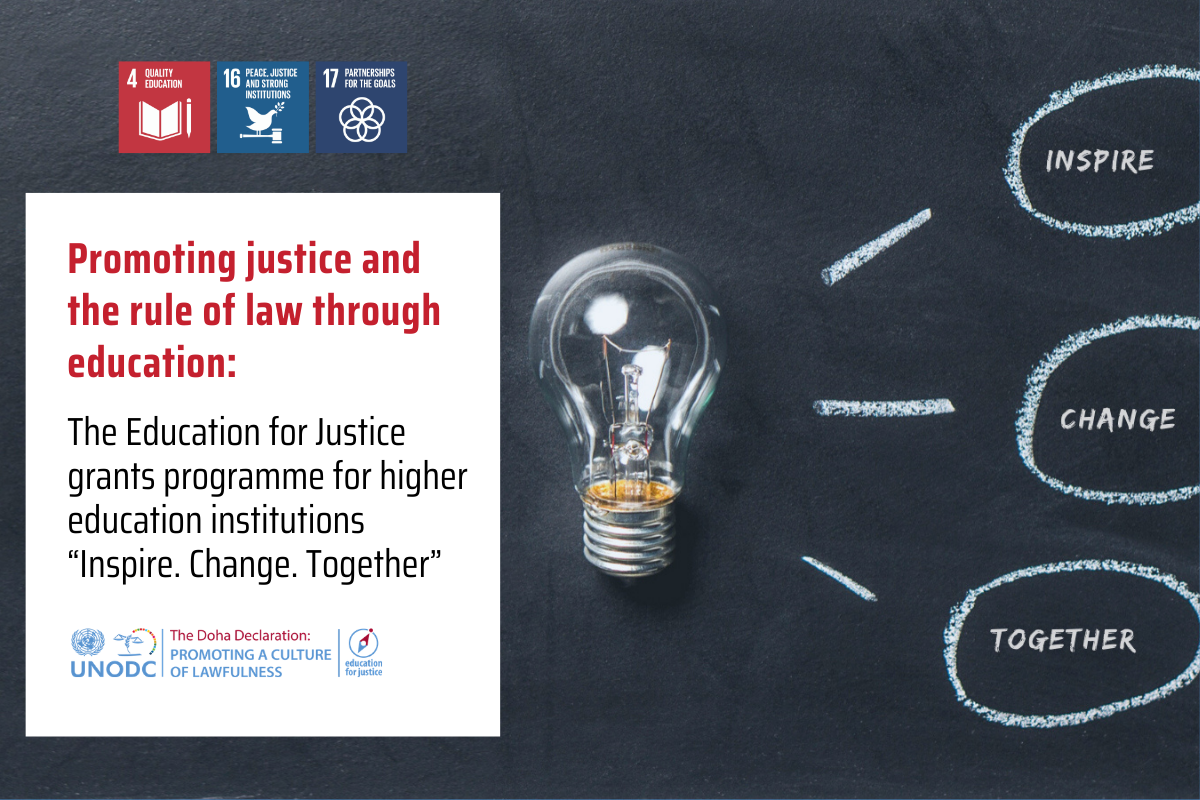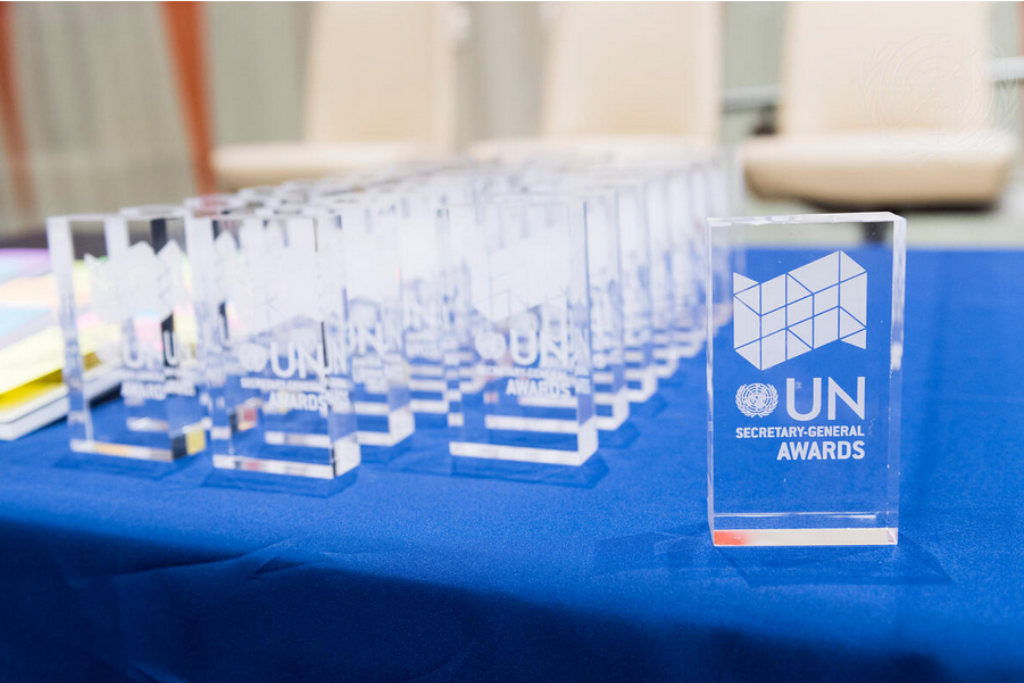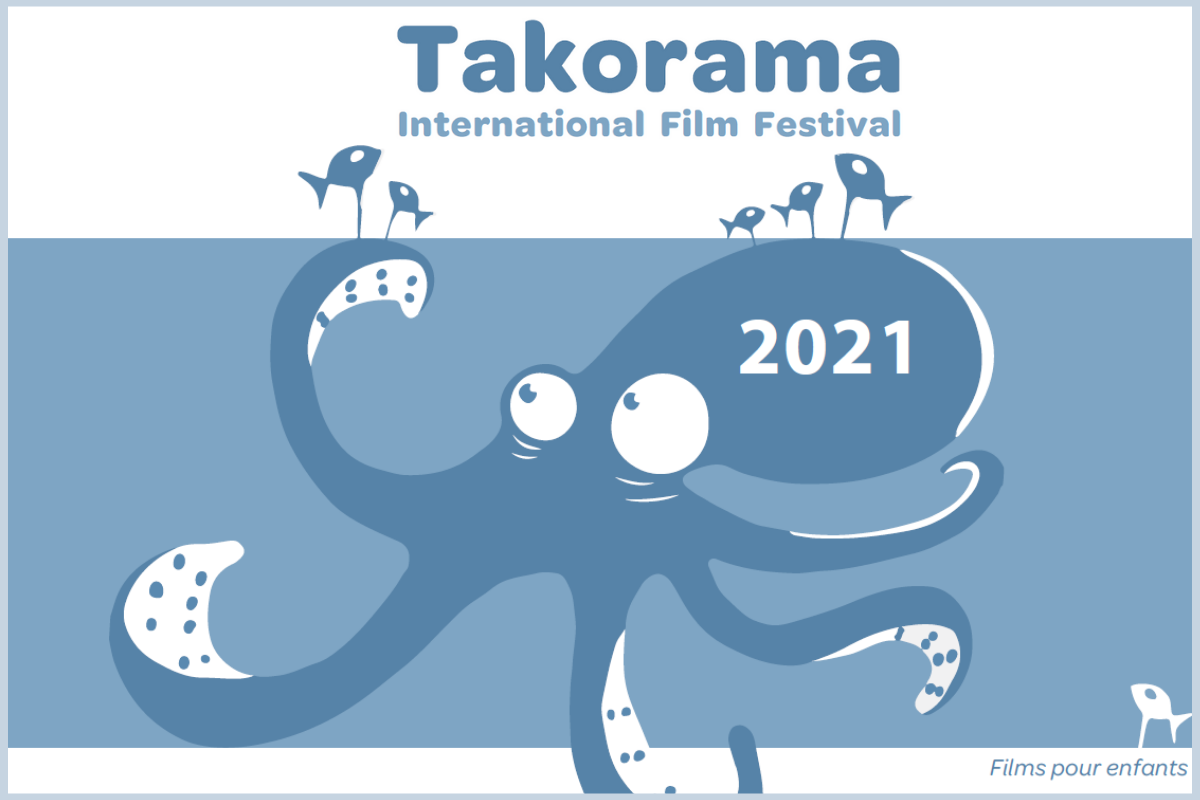'Ten stories just like this': spreading lawfulness and resistance to organized crime
18 October 2018 - Fifty secondary school children from a small town on the outskirts of Vienna sat mesmerized at UNODC headquarters on Monday as they watched, in the midst of an international audience of Member State delegates, a special English-language production of 'Dieci storie proprio cosi' (Ten stories just like this), the renowned play which was being performed for the first time outside of Italy. Recounting real stories of people whose relatives were victims of organized crime, actors engaged vivaciously with the audience and interspersed live scenes with clips from the documentary of the same name recently broadcast on RAI television.
This unique event, organized jointly by UNODC's Education for Justice (E4J) initiative and the Permanent Mission of Italy to the International Organizations in Vienna, was held during this week's 9 th Session of the Conference of the Parties to the United Nations Convention against Transnational Organized Crime. It is a perfect representation of what experts believe is a necessary step in the global struggle against organized crime, and in the aspiration for a culture of lawfulness: education. Introducing the play, Alfonso Bonafede, Minister of Justice of Italy, recalled reaching out to the Minister of Education on his first day in office, to discuss how they could together bring the concept of lawfulness to schools: "We wanted justice to be perceived not just as an institution which you might deal with if something goes wrong in your life, but justice as part of your values, as part of your educational journey."
This was precisely the intention of author Giulia Minoli when she created the project ' Il palcoscenico della legalita' (the stage of lawfulness), of which the play co-written with Director Emanuela Giordano is an integral part. "Theatre has always been an educational tool, of training, of debate, and of narration of the political and social events that have crossed humanity," Ms. Minoli explained. In showcasing stories of civic responses to organized crime, which they collected throughout Italy, the aim was to transform them into powerful tools for preventing and fighting organized crime. She describes 'Dieci storie proprio cosi' as a reasoned act of provocation against the transversal, omnipresent Mafia network, and, specifically addressing the Austrian youngsters in her audience, as "a collective response" to the question of what we can do.
|
Maria Falcone strongly agrees. As president of the Falcone Foundation (founded in honour of Judge Giovanni Falcone, her brother, who was assassinated by the Mafia in 1992 after an illustrious career fighting organized crime, and whose work helped pave the way for the adoption of the landmark UN Convention against Transnational Organized Crime and the Protocols Thereto, also known as the Palermo Convention), she is a firm believer in the power of education and shared Judge Falcone's philosophy with the audience after the play: "Giovanni's first action was to help people on lawfulness. He used to say that it is a cultural phenomenon, so that young people can truly understand what is meant by lawfulness and what is meant by crime, in order to shore up a new attitude."
Italy's National Anti-Mafia Prosecutor, Federico Cafiero De Raho, is an equally staunch advocate of using real events to educate and to legislate on an international level. "I would like to emphasize that the play we have just seen is a wonderful performance. It is not a work of fantasy, it is the theatrical production of reality, of what the Mafia and 'Ndrangheta have done and are still doing."
Through text and theatre, through written, visual and verbal communication, innovative ways to educate the younger generation are increasingly included in education curricula. Professor Nando Dalla Chiesa (son of General Carlo Alberto Dalla Chiesa and Emanuela Setti Carraro who were assassinated by the Sicilian Cosa Nostra in 1982 after a long and distinguished struggle against terrorism and the Mafia), an expert in the field at the University of Milan, stressed this point: "I think this performance has been an effective demonstration of what can be done to weaken organized crime at all levels. We have been working for years on this, and the power of drama is one of the most powerful discoveries we have made."
The strength of 'Dieci storie proprio cosi' lies not only in the actual performance, powerful in itself, but also in the additional interactions that happen after the play is over. "In Italy, 50,000 students have seen the play, and most of them have also participated in the workshops offered by the actors, who are also trainers," explained the creator of the project, Giulia Minoli. "At the end of the play, we do not go straight home; there is always a lively dialogue with the public, and we all participate - actors, authors, directors, together with the true protagonists of the stories we have told, like magistrates, journalists, mayors, witnesses."
Such interactions bring the facts and the overall message home even more powerfully, especially with students. Miwa Kato, UNODC Director of Operations, noted that many of these stories touched upon topics explicitly covered by and enshrined in the UN Convention against Transnational Organized Crime, and added: "Both the E4J initiative and the theatre play share the underlying conviction that education should be a fundamental part of any effective crime prevention strategy. Doing it properly and effectively is no easy task, but it is one that is fundamental to empower the youth of today to do a better job in preventing, and combatting, transnational organized crime than we were ever able to do."
E4J, a component of the Global Programme for the Implementation of the Doha Declaration, offers a significant library of resources to promote a culture of lawfulness and complement educational programmes.
Additional information:
Education for Justice initiative
Il palcoscenico della legalita


